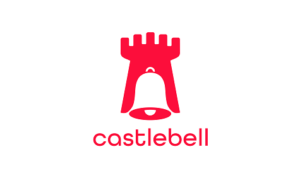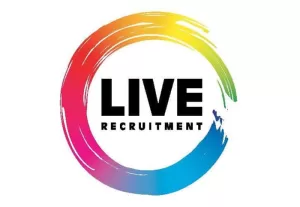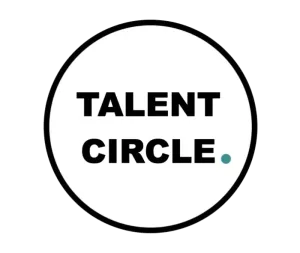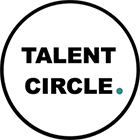Welcome to the Careers Hub. This section of the Power of Events platform has been designed to showcase the depth and range of career opportunities available across the seven sectors that make up the UK events industry.
For people looking to change roles, those looking to start their careers and those interested in events currently working in other industries, the hub is packed with information and links to advice, insight, and support.
This includes the five main routes into the industry and a glossary that reveals the breadth of job roles across all the different sectors. It also includes links to some of the key support organisations that have helped curate the content and can provide more support and information.
All of this has been made possible by the generosity of all of our supporters, in particular to our lead and recruitment partners.
The constant feedback that we receive from across the UK events industry will support the ongoing development and improvement of the Careers Hub.
Recruitment Partners
Job Roles
A qualified person who understands the needs of disabled and partially disabled people including staff, volunteers, and attendees. Ensures that they are provided for appropriately. This same person might also be responsible (often with Health & Safety Manager or Welfare) for Lost and Found Children and Vulnerable Adults, plus an Ask Angela scheme.
An account executive/manager/director is responsible for managing the relationship between a client/brand and the agency. They support their client by planning events that align with the client/brand business objectives. This might include building brand awareness using events, They act as the dedicated point of contact for the client.
Responsible for managing the artistes involved in the event. This would include advising on contract negotiations with promoters, negotiate gig and contract agreements and protecting artistes rights and brand. Scheduling tours and shows would also feature.
Rig and operate a wide range AV equipment (sound, lighting, projection etc) in a variety of event settings, to include; conferences, exhibitions, live virtual & hybrid. Communicate effectively with Production Managers and clients regarding upcoming events. Prep, test and maintain live event equipment in the warehouse.
A Businesss Development executive/manager/director is responsible for the sourcing and winning of new clients and business pitches.

“The Making of Live Events” video, a groundbreaking film produced by The Power of Events supporter Adlib that highlights the range of amazing range of jobs in the live music sector within the wider events industry.
Together with Production Futures, PLASA and LIVE, we recognised the need to inspire the next generation directly.
Our goal? To present every 12+ year old an awareness of the live events industry and the invisible careers that exist within it. So, whether you’re an educator, advisor, or student, this is your chance to see the events industry from within.
Types of Employment
Freelance
A freelancer is an independent contractor who operates as a sole trader or limited company. Freelancers have to register with HMRC, invoice clients for their time and have their own insurances such as Professional Indemnity and/or Public Liability. Although they don’t have rights to contractual sick pay or leave, they still have legal rights at work including, Health & Safety, discrimination and legal protection subject to contract.
Full-time
Full-time positions are typically advertised as 35-40 hours per week on a permanent or fixed-term basis. Dependent on the specific role, a full-time employee is often required to work additional hours to ensure deadlines are met and delivery is smooth. A full time position (post probation) would usually include an employer pension contribution, sick pay, annual/maternity/paternity leave and may be accompanied by a performance related bonus, as well as additional benefits. There may also be the offer of hybrid or fully remote working arrangements.
Part-time
A part-time employee is defined by completing the same type of work as a full-time colleague but over less hours/days. The tasks associated with the role, as well as the employees rights, are the same as a full-time colleague. It will also follow the same salary scale but will be paid at a pro rata rate.
Zero-Hours
A zero-hours contract means availability to work for an employer, but these specific hours of work are not stated in the employment contract. This type of contract doesn’t guarantee the employee a set number of hours of work per week; however, it can require them to be available for a certain number of hours, or when required, or both.
Routes to Industry
Direct Employment
A business may choose to advertise the job vacancy themselves, alternatively, they may work with a recruitment agency. Job roles are often advertised by the employer on their website, via LinkedIn and job boards. Shortlisted candidates will be invited for an interview, after which they will either receive a job offer or be rejected from the position. If a recruitment agency has been used, candidates may have been specifically headhunted for the role, or at the very least have gone through a stringent screening process, ensuring only those with relevant skills and experience are put forward for interview. Click here for more info….
Events Apprenticeships
Apprenticeships open the doors to people from all backgrounds and ages, to gain experience and relevant professional qualifications within the events industry. Click here for more info….
Internships + Work Placements
An internship is an opportunity that can last from as a little as a few days to several months. It offers an opportunity to gain experience and relevant skills. Many employers use the short time of internships to assess a candidates capability, and will use the opportunity to recruit new employees from their interns. A placement is a work experience opportunity that usually lasts an entire year, and is required as part of many university degrees and skills courses. Taking a year out of studies (usually between the penultimate and final year of university) to work as a full-time employee and gain additional academic credits. A good proportion of businesses across the events industry offer some form of work experience, internship or placement. Click here for more info….
Skills Courses
Accredited courses, ranging from Certificate and Diploma to Postgraduate and Degree alternatives are a great way to gain skills, training and work placements to enable the future talent to get jobs at all levels and in all sectors across the UK Events Industry. A good proportion of event courses also support work experience, internship or placement. Click here for more info….
University Courses
Studying events management at university through a foundation degree, foundation year, Higher National Diploma (HND), degree or masters has been available in the UK since 1996, with thousands of graduates now working successfully in industry who have studied events management or other subjects. Click here for more info….
Lead Recruitment Partners

CastleBell Recruitment
We're CastleBell. Specialists in connecting top talent with leading strategic and creative event agencies and growing teams who drive real impact. We're constantly striving to be more than just a recruitment agency. We're strategic, committed partners to our clients, understanding their businesses and needs inside and out, to find talent that drives meaningful impact on their success. Whether it's permanent positions or contract and freelance roles, we cover all levels and specialities within the events industry. For candidates, we're committed to being trusted allies, offering guidance and support to navigate career advancements and progression.

Live Recruitment
As the UK’s largest specialist events recruitment agency, we have the scale, reach and industry understanding to help our clients and candidates meet their goals faster, smarter and more effectively. Working across all areas of the events industry we are the go-to talent partner for both permanent and freelance roles. We’re a hands-on and experienced team, working with boutique and multinational businesses throughout the UK. As the UK’s largest specialist events recruitment agency, we have the scale, reach and industry understanding to help our clients and candidates meet their goals faster, smarter and more effectively. Working across all areas of the events industry we are the go-to talent partner for both permanent and freelance roles.
Recruitment Partners

ESP Recruitment
As the leading recruitment specialist in the events industry since 2000, we offer integrity, honesty and confidentiality to our clients and candidates. With offices in London and Dubai, we concentrate on doing one thing and doing it really well. We have built up a reputable company that is seen as more than just a recruitment agency, but a proactive member of the events industry

Talent Circle
Our ethos is simple, Talent Circle connects outstanding event industry talent with leading companies. We do this by sharing our knowledge, experience, and nurturing our long-lasting business relationships. People drive your business, embody your values and embrace your culture so naturally you want the best. That’s where Talent Circle comes in …





 [contact-form-7 id="322" title="Contact us"]
[contact-form-7 id="322" title="Contact us"]